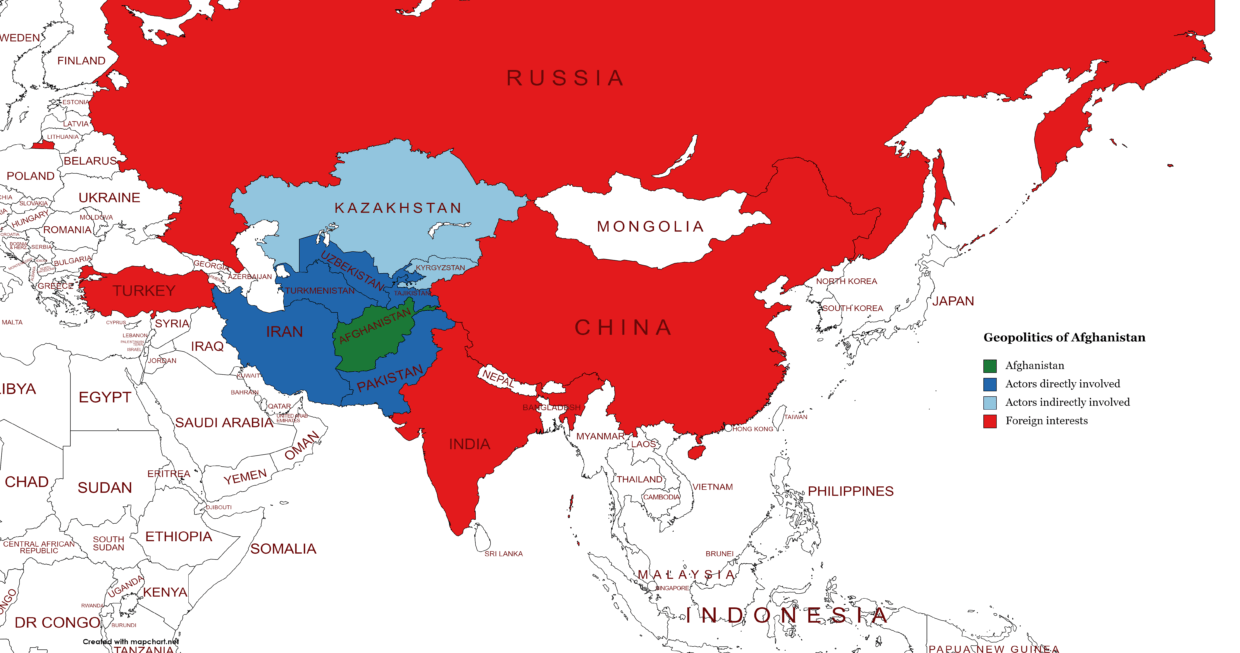How Afghanistan is influencing the Turkmenistan-Uzbekistan cooperation

Turkmenistan and Uzbekistan are intensifying their cooperation in different fields to create a strong partnership in Central Asia. Ashgabat and Tashkent are also interested in creating a joint partnership in connection with the recent developments in Afghanistan to secure their countries and boost their economies.
On October 5th, 2021, the President of Uzbekistan Shavkat Mirziyoyev, held a meeting with the President of Turkmenistan Gurbanguly Berdimuhamedov and signed 23 documents covering almost all areas of multifaceted Uzbek-Turkmen cooperation. The heads of State adopted a Joint Statement, which considered the results of the negotiations between the leaders of states, identified promising tasks for further strengthening the Uzbek-Turkmen strategic partnership.
The signed documents were exchanged between the chairmen of ministries, departments and regions of the countries. Among the documents, the two parties signed an agreement on the creation and regulation of the activities of the Uzbek-Turkmen border trade zone and the establishment of a Trade Center in adjacent territories, an agreement on increasing the volume of trade and expanding mutually beneficial partnerships between enterprises and companies, and a protocol on organising the exchange of preliminary information on goods and vehicles moved across the customs border.
Also, important documents were drawn up for the further development of relations in transport, transit traffic, water-saving technologies, justice, social protection, statistics, quarantine and plant protection, science and culture.
Both the parties also agreed on continuing to provide humanitarian support to the people of Afghanistan and actively interacting to implement important socio-economic and infrastructure projects in this country.
Why does it matter?
Because Turkmenistan and Uzbekistan are increasing their efforts to create a joint and mutually beneficial partnership in Central Asia and regulate their trade volume and transport and logistics possibilities. The two parties might also cooperate in Afghanistan since both Ashgabat and Tashkent have tried to dialogue with the Taliban and become part of the reconstruction process after the U.S. troops withdrawal and the vacuum of power left by the international coalition forces in the region (The new geopolitical game of Afghanistan).
For instance, at the beginning of October, the acting Foreign Minister in the interim Taliban Government, Amir Khan Muttaqi, held talks with the Uzbek Ambassador to Kabul, Shadmanov Yadgarkhoja, to discuss the reconstruction of the airport in Mazar-e-Sharif and the resumption of air traffic between the countries. Muttaqi called for strengthening relations between Afghanistan and Uzbekistan. During the same day, Muttaqi met the Ambassador of Turkmenistan in Kabul, Khoja Ovezov, to discuss the development of the Turkmen-Afghan partnership, the organisation of meetings of representatives of the business circles of the two countries and searching for new formats of economic interaction.
Uzbekistan and Turkmenistan share their borders with Afghanistan. Hence, Tashkent seeks to stabilise the Afghan State as one of its primary goals in the region, considering the influence that the Taliban or the rise of several terrorist groups might have on Uzbek security and stability (i.e. the Islamic Movement of Uzbekistan). At the same time, Turkmenistan aims for a secure and stable Afghanistan to promote and finally realise the Turkmenistan-Afghanistan-Pakistan-India gas pipeline (TAPI), an infrastructure that Ashgabat considers fundamental for its gas exports and economic growth. The increasing cooperation and the recent documents signed by the Uzbek and Turkmen presidents might be interpreted in the collaboration frameworks to stabilise Afghanistan and exploit the possibilities that the Taliban Government might currently give to regional actors.
Author: Giuliano Bifolchi
